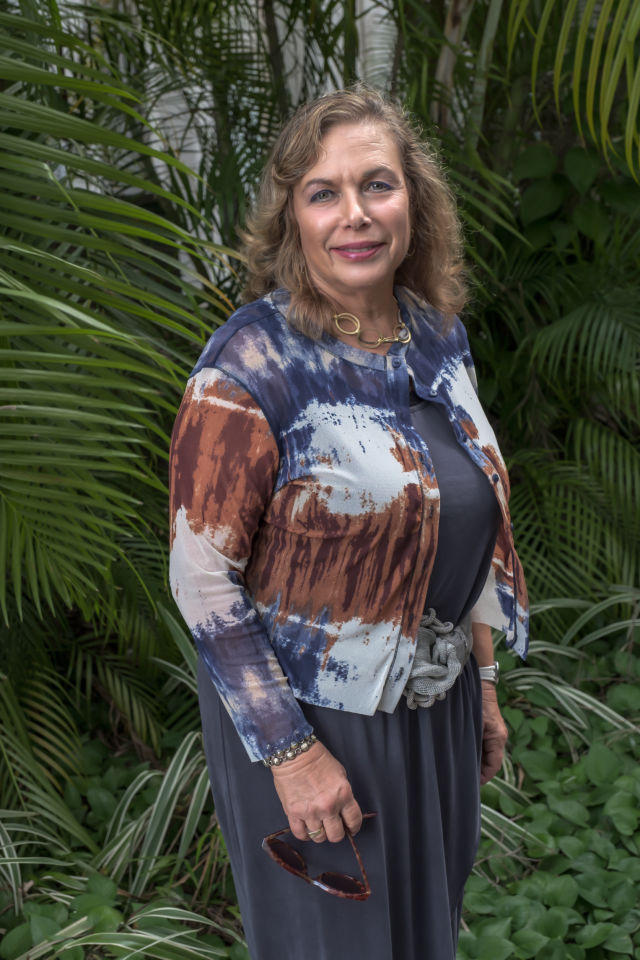
How Telehealth Technology Is Changing Health Care
When child and adolescent psychiatrist Dr. Stacy Greeter meets patients at her private practice in Sarasota, she is usually connecting with patients by playing with toys, using props and offering cuddles from her office therapy dog. But since the Covid-19 pandemic began to affect Florida in early March, Greeter was forced to move to a virtual platform in order to continue seeing clients.
Like many medical professionals, Greeter has turned to telehealth (or telemedicine, the term used when referring to clinical services) as an alternative to in-person care. Because of that, she has been able to virtually meet with patients anywhere in Florida. As the need for mental health care rises because of the pandemic, patients all over the state now have newfound access to specialists like her.
"Telehealth provides benefits, including extending specialty care to those who would not otherwise receive it due to location," Greeter says.
But the shift has not come without its share of challenges.
"I've had a hard time with clients connecting on an emotional level with me, especially new patients," says Greeter. "I had to get creative with child clients to keep them engaged on an online platform. Just yesterday, I was wearing a unicorn hat and playing with puppets for some virtual sessions, but kids' reaction time and attention span is just not the same as in-person, especially if their video connection is bad."
Greeter says her patients who are "already on edge" are at heightened risk. "Between stress from the pandemic and not being able to see me face-to-face, it just tips them over," says Greeter.
Telehealth generally consists of calling your doctor over the phone or conducting your visit through video call platforms. All prescriptions, courses of treatment and medical advice are provided, minus the waiting room visits and the commute to a doctor's office. Most practitioners are using a secure video call platform called Doxy.me that follows Health Insurance Portability and Accountability Act privacy rules, so patients can feel safe disclosing confidential information.
While this process has been a convenient and viable option for patients in good health, it has proven to be a challenge for sick patients and doctors who need to make a proper diagnosis while navigating new platforms. Medical professionals are still seeing patients in-person, but not without an extensive screening of symptoms to determine whether they are infected with Covid-19 and are at risk of infecting others.
Major insurance companies including Blue Cross and Blue Shield, Aetna, Cigna, United Healthcare and more cover telehealth services. Most patients pay the same co-pay as if they were seeing a doctor or specialist in an office. There are also some private insurers who will reimburse money paid for telehealth visits.
Medicare Part B also covers certain types of telehealth, including routine checks, consultations and psychotherapy, and Medicare allows patients to pay 20 percent of the Medicare-approved amount for a health care provider's services. For those lacking insurance, telehealth may not be an option, unless they are willing to pay out of pocket.

Dr. Rob Weiss
Image: Courtesy Photo
Preliminary screenings over the phone have proven successful for Sarasota pediatrician Dr. Rob Weiss and his office staff. Patients wait in their cars in the office parking lot, while nurses gather medical histories and an explanation of symptoms. If they are not severe, they will offer a telehealth consultation instead of inviting them into the office. This has greatly reduced waiting room traffic and the chance of exposing a healthy patient to someone who is sick.
"Parents are really enjoying this new service and use telehealth at any chance they get," says Weiss. "While it can be challenging to get a 4-year-old to sit still long enough for me to examine them over video call, they are more comfortable in their own homes."
When conducting video calls, Weiss instructs parents on how to direct the camera so he can fully examine ears, noses and throats prior to making a diagnosis. Then he sends prescriptions electronically to the pharmacy. Weiss even explains how to take kids' blood pressure, pulse and weight, if needed.
"It has been empowering and rewarding at the end of the day to know we helped people online and are not putting anyone at risk," says Weiss. "At first, we questioned the validity of telehealth, but now we know we have to do this in order to survive, and it's working."

Dr. Sherri Jonas-Lazin
Image: Courtesy Photo
For at-risk populations, like the elderly, a combination of mobile medicine, similar to old-fashioned house calls, and telehealth have been beneficial. As a primary care doctor for 40 years, Dr. Sherri Jonas-Lazin began participating in mobile medicine in 2006 and has seen the benefits of the service for her most vulnerable patients. She is currently working with Florida Mobile Physicians to treat elderly and disabled patients during the pandemic.
"Many of the people I treat can no longer get out, or are living in nursing facilities," says Jonas-Lazin. "Once I arrive at their homes and see the conditions they are living in, I realize they may need a higher level of care in an assisted home."
Jonas-Lazin has seen a steady influx of calls for mobile medicine services since the pandemic began, and has been able to diagnose and treat several patients for various ailments in their homes. The company also conducts video calls by providing patients with iPads and smart blood pressure machines, which are able to record vitals and send them directly to doctors.
"Sometimes I have elderly patients who are unable to use technology properly, so the new software we're implementing will actually speak to them, and give them step-by-step instructions on how to take vitals and make video calls," says Jonas-Lazin. "I see about 10 patients a day, so this service will help tremendously."
Besides regular check-ups, Jonas-Lazin has been able to diagnose acute skin ailments through video calls while working with a wound care specialist to determine the course of treatment. She has also performed cultures, diabetes tests and checks for gout.

Dr. Avi Kumar
Image: Courtesy Photo
For Coastal Orthopedics shoulder and elbow specialist Dr. Avi Kumar, telehealth is a precursor to exams and tests that are required in-office, and it is also a convenient way to follow up with patients after an operation.
"Depending on the quality of Internet connection, we can do a detailed exam virtually," says Kumar. "We assess the patient's loss of active range of motion, and a strength exam where patient's partners can test their arm in certain positions to determine weakness or need for an MRI."
Kumar hopes that as telehealth progresses, regulations change so that practitioners can see patients remotely across state lines. This would improve how patients receive post-operation follow-ups. If they are healing well, perhaps they do not need to come into the office.
Identifying early problems is another advantage Kumar finds with video calls. "If we did surgery on a patient and they are out of the area, we can pick up earlier signs of whether they have complications, like hematomas, blood clots or possible infections," says Kumar. "We can see these issues through video call, and refer them to an urgent care center if needed."
Large practices like Intercoastal Medical Group have developed streamlined telehealth services. Doctors block out time for virtual visits in a busy office day. However, with a large amount of patients with widely varying needs, some have no choice but to be seen in person.
"We have run into some patients who are not great candidates for telemedicine," says Dr. Alexander Austin, a doctor of family medicine at Intercoastal's Beneva Road location. "If they have cardiovascular concerns, chest pain or are scheduled for a gynecology or obstetrics appointment, they usually come in, as it's easier to relay information and run tests face-to-face."
Small private practices, while having trouble streamlining virtual services, have found that telehealth has worked well for their smaller number of clients. Clinical psychiatrist Dr. Stephanie Lirio of Helping Families Cope finds that telehealth reduces the number of no-show patients who cause gaps in her schedule.
"I think that people are more inclined to follow through with an appointment when there is no commute to the office, or as a working person, you can have a phone session during lunch," says Lirio.
Lirio says telehealth has allowed her to more easily prescribe controlled substances, like anxiety and ADHD medication, to those in dire need. Instead of handwriting a script, Lirio can send an electronic one, which has been life-changing for her most acute cases.
So, is telehealth here to stay even after the threat from Covid-19 passes? For many practitioners, the answer is a resounding yes. While the need for a physical office will never go away, virtual visits can serve as a makeshift gatekeeper between the sick and vulnerable and those simply needing a routine check.
"This is the wave of the future," says Dr. Weiss. "We have to innovate and keep finding new ways to help people. This alternative will be with us for awhile, and will continue to get better with time and technology."